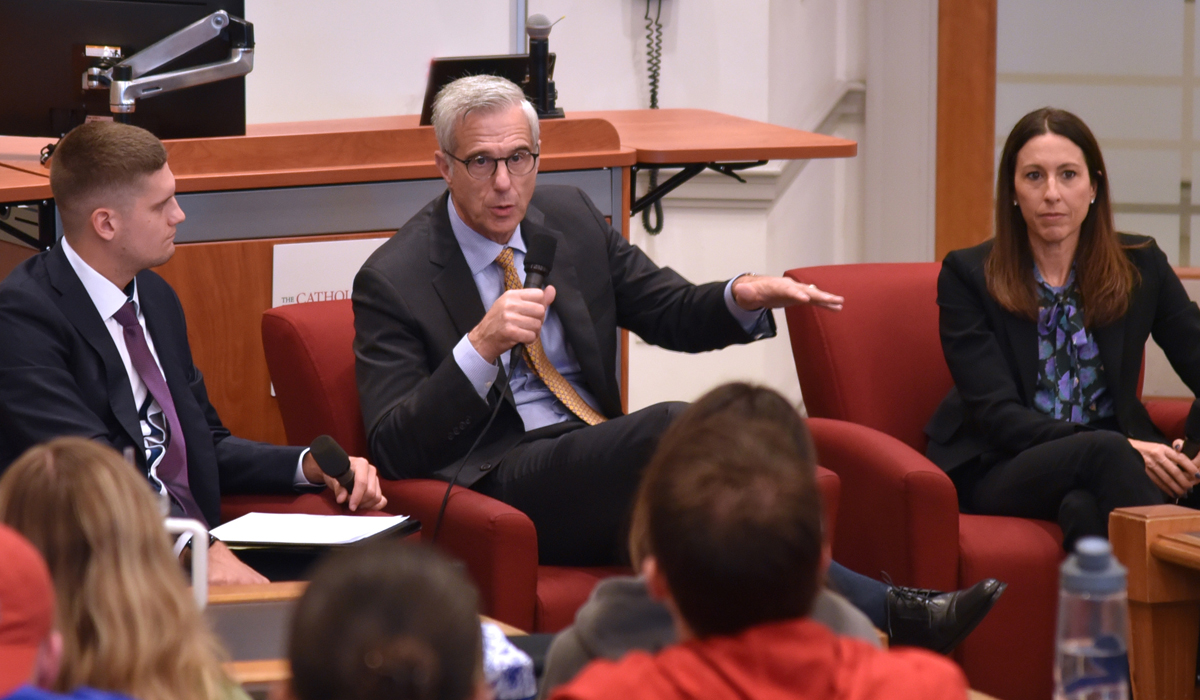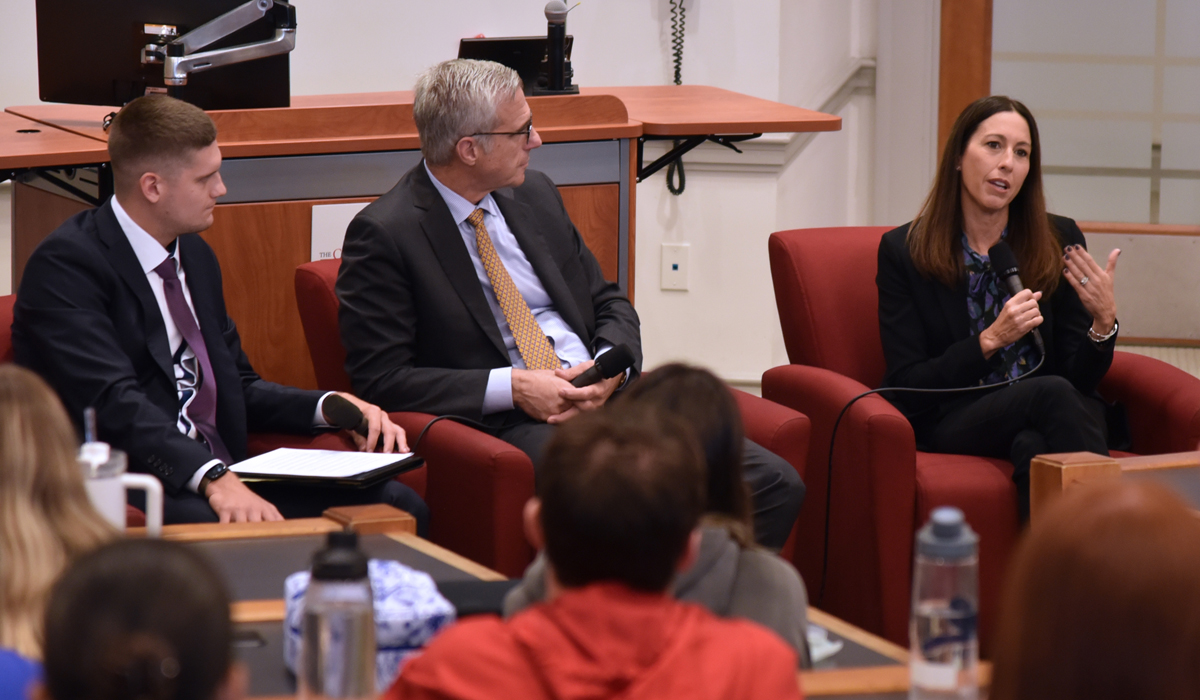From L to R: Stephen Payne, Reynold Hoover, Janet Evans, and Robbie Dickson
In a lively panel discussion, Reynold Hoover, a Catholic Law graduate from the class of 1997 and recently named CEO of the LA28 Olympic and Paralympic Games, and Janet Evans, Olympic champion swimmer and Chief Athlete Officer for the Games, captivated an audience of future lawyers and undergraduate students, including many Catholic University student-athletes. Recent law school graduate Robbie Dickson ‘24 and Law Clerk for the firm Fisher and Phillips moderated the discussion, guiding the duo through a conversation about their ambitious vision and major logistical planning efforts for the biggest Olympic Games ever.
 Hoover, a retired three-star lieutenant general in the Army and National Guard with extensive operational planning experience and a career spanning work in the CIA, FEMA, the White House, and as a commercial litigation attorney, discussed the intricate logistical challenges and legal considerations inherent in orchestrating an event of such magnitude. He emphasized the importance of collaboration among various stakeholders, including international sports federations, city officials, more than 75,000 volunteers, and, of course, the athletes themselves, to ensure compliance with regulations and successful execution, comparing the undertaking to planning “seven Superbowls a day, for 20 straight days.”
Hoover, a retired three-star lieutenant general in the Army and National Guard with extensive operational planning experience and a career spanning work in the CIA, FEMA, the White House, and as a commercial litigation attorney, discussed the intricate logistical challenges and legal considerations inherent in orchestrating an event of such magnitude. He emphasized the importance of collaboration among various stakeholders, including international sports federations, city officials, more than 75,000 volunteers, and, of course, the athletes themselves, to ensure compliance with regulations and successful execution, comparing the undertaking to planning “seven Superbowls a day, for 20 straight days.”
For Hoover, his decision to come out of retirement to lead the Olympic planning efforts stemmed from his longstanding oath to serve the public and the unique opportunity to “capstone a career in public service by helping to unite the world and the nation around sport, at a time when I think we need it most.”
Evans, a three-time Olympic athlete turned sports policy advocate, added her perspective on the ethical implications of hosting the Games, including sustainability, athlete welfare, and community impact. Her insights as the LA28 Games Chief Athlete Officer will draw from her firsthand experiences, highlighting how the planning team will play a crucial role in shaping policies that affect athletes’ legacies.
 Evans, whose Olympic swimming career included four gold and one silver medal, described her most profound Olympic moment, one that she would give up all of her medals to experience again. It came not from setting a new world record or winning a race, but from passing the Olympic torch to Mohammed Ali in the 1996 Atlanta Games. Ali, who had been suffering from Parkinson’s at the time, was a shadow of his former self. “To stand up there with this champion…with his courage to say to the world, ‘yeah I’m sick, but I’m still here in the name of this movement, was an inspiration to me and to every athlete standing on the sidelines experiencing their own Olympic moment.”
Evans, whose Olympic swimming career included four gold and one silver medal, described her most profound Olympic moment, one that she would give up all of her medals to experience again. It came not from setting a new world record or winning a race, but from passing the Olympic torch to Mohammed Ali in the 1996 Atlanta Games. Ali, who had been suffering from Parkinson’s at the time, was a shadow of his former self. “To stand up there with this champion…with his courage to say to the world, ‘yeah I’m sick, but I’m still here in the name of this movement, was an inspiration to me and to every athlete standing on the sidelines experiencing their own Olympic moment.”
Hoover's and Evans' blueprint for organizing the LA28 Olympic Games not only establishes new standards for size and spectacle but also emphasizes human legacy, environmental responsibility, and community engagement. This sparked engaging discussions among the students, inspiring them to think critically about the intersection of sports, law, and social responsibility.
